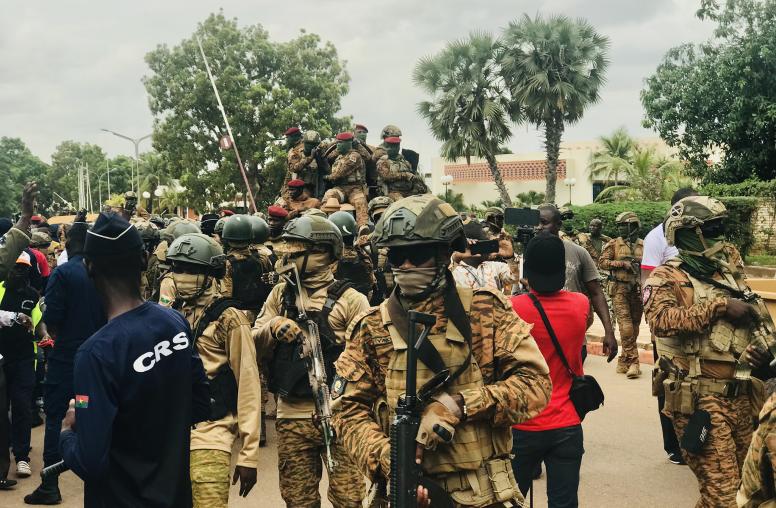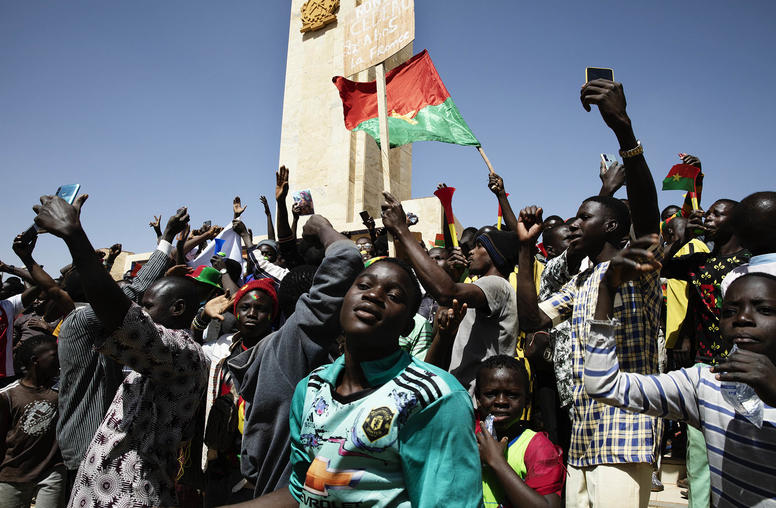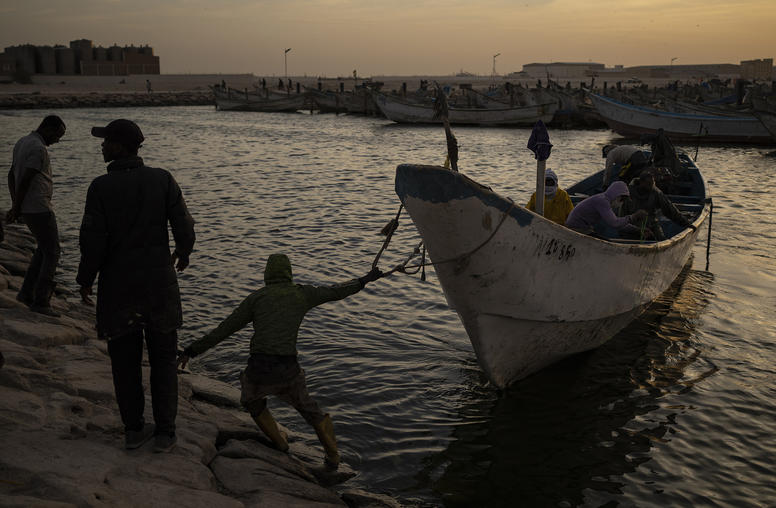Mobilization, Negotiation, and Transition in Burkina Faso
In October 2014, a massive popular uprising unseated Burkina Faso’s long-time president, Blaise Compaoré, and drove a civilian-led transition that culminated in free and fair elections in November 2015. This report shows the importance of the national culture of dialogue and consensus and the benefit of a vast, resilient network across negotiating groups. Although violence in the country has since increased, lessons from Burkina Faso’s transition can inform the dynamics of popular mobilization, negotiations, and prospects for long-term peace and democracy in other settings.

Summary
- A popular uprising in October 2014 forced Burkina Faso’s president, Blaise Compaoré, to resign after he tried to remove constitutional limits barring him from a fifth term.
- Persistent popular mobilization shaped the subsequent transition and helped lead to substantial reforms. The transition benefited from a culture of dialogue and consensus and a vast, resilient network across negotiating groups.
- Several recommendations arise from these events. All actors should encourage a culture of dialogue and help build networks between stakeholders well before popular mobilization begins.
- A rushed transition focusing on the quick delivery of elections may be less desirable than a longer and more ambitious transition that aims to address deep-rooted failures of the old system.
- International actors should back the priorities laid out by domestic forces and have a context-specific approach.
- Stakeholders need to anticipate the emergence of spoilers who want to roll back the transition and strategize accordingly.
- Finally, movements need to prepare for and guard against an inevitable decline in momentum after their initial successes.
About the Report
This report examines how nonviolent action and negotiation processes together facilitated an unlikely peaceful democratic transition in Burkina Faso in 2014 and 2015. Based on extensive research and interviews with key figures in the transition, including political leaders and civil society activists, it was funded by the People Power, Peace Processes, and Democratization project, a joint initiative of the Nonviolent Action and Inclusive Peace Processes programs at the United States Institute of Peace.
About the Author
Eloïse Bertrand is an Early Career Fellow at the Institute of Advanced Studies at the University of Warwick, where she recently earned her doctorate in politics and international studies. Her research focuses on party politics, democratization, and institutions in sub-Saharan Africa, with an emphasis on Burkina Faso and Uganda. She is the co-author of A Dictionary of African Politics, which was published in 2019 by Oxford University Press.



